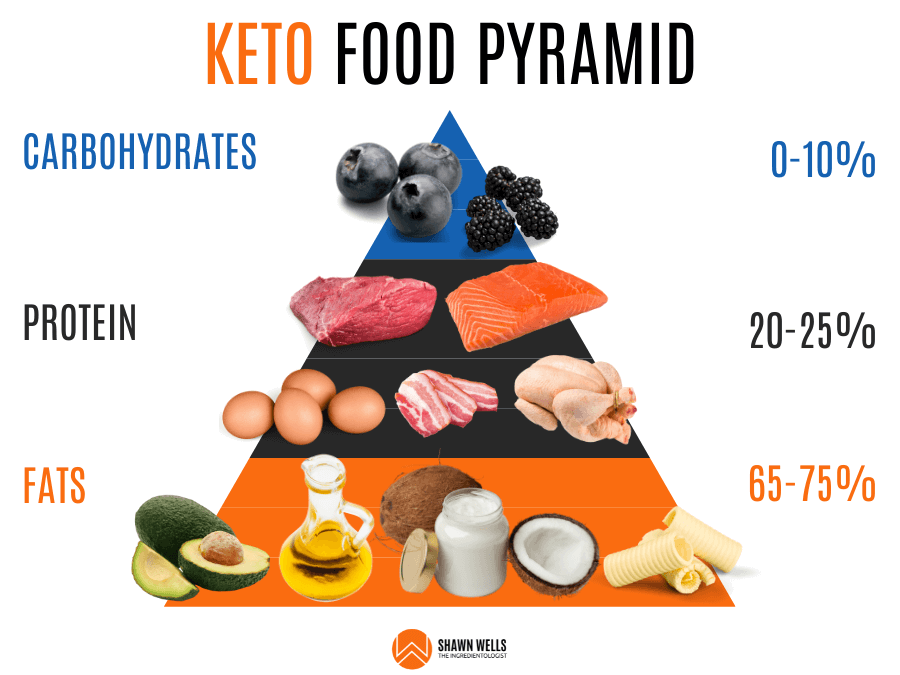The Keto Diet: How Can It Benefit You

You have probably heard of the keto diet as just like intermittent fasting, it’s been a hot topic in the health industry for a while now. For those interested in trying it, the amount of information out there is overwhelming. But it doesn’t have to be!
What Is The Keto Diet?
The ketogenic diet is very low in carbs and very high in fats. It can result in significant reductions in blood sugar levels and improvements in glycemic control. We’ve all been told glucose and carbohydrates are where we get energy from. While that’s true (blood glucose is important for fuel), there’s an alternative fuel source called ketones that are an incredible source of energy from fat. The brain actually can work better being fueled by ketones.
Living A Keto Lifestyle
Adopting the keto lifestyle for over two decades has been a transformative experience for me. My journey began when I fell severely ill with Epstein-Barr and grappled with Chronic Fatigue Syndrome, brain fog, depression and Fibromyalgia. In my quest for relief, I discovered the keto diet. This revelation was empowering; it implied that my autoimmune challenges need not define or limit my life. Deep diving into the principles of the ketogenic diet, nutritional ketosis, and the role of ketone bodies solidified my belief in keto as the key to overcoming my health issues. Within weeks, noticeable improvements in my wellbeing emerged, not just to me but to those around me as well. To describe the positive shift in my health as merely exciting would be an understatement.

The keto diet can be beneficial to many people for an assortment of reasons, and it can be customized to fit your bio-individuality. The main factors that led me to sticking to the keto diet: it cuts out all nutrient-deficient foods, it helps me to feel full and satisfied, it has cognitive-enhancing effects and healthy weight maintenance.
Keto Diet Studies
In a review of 23 weight-loss trials published in the American Journal of Epidemiology, researchers from Tulane University found that both low-carb and low-fat diets led to weight loss, reduced waist circumference and improved metabolic risk factors with no significant differences between diets. They concluded: “These findings suggest that low-carbohydrate diets are at least as effective as low-fat diets in reducing weight and improving metabolic risk factors. Low-carbohydrate diets could be recommended to obese persons with abnormal metabolic risk factors for the purpose of weight loss.”¹
One of the most reliable examples is the A TO Z Weight Loss Study, a randomized trial conducted by a group of Stanford researchers led by Dr. Christopher Gardner. In the trial, the researchers compared four popular weight-loss diets—Atkins (low-carb and high-fat), LEARN (low-fat), Ornish (low-fat) and Zone (low-carb)—and they found that women following the Atkins diet lost more weight and experienced more favorable metabolic effects after 12 months compared to the other diets.²
In a study published in the Journal of the American Medical Association—the DIETFITS clinical trial, which randomized 609 overweight or obese adults to a healthy low-fat or a healthy low-carb diet for 12 months—both diets led to similar weight loss and metabolic health improvement (e.g., reduced fasting glucose and insulin). Notably, the low-carb diet led to more favorable improvements in HDL cholesterol and triglycerides.³
One of my favorite aspects of the DIETFITS trial was the emphasis on diet quality. The lead physician Dr. Gardner and his team put a tremendous emphasis on high dietary quality for both groups, which is important because traditional low-fat diets often lead to reduced diet quality due to the low-nutrient density of heavily processed, convenient, pre-packaged low-fat foods (e.g., refined grains, added sugar).
Bio-individuality And The Keto Diet
Keto has proven highly effective for some, aligning well with their daily routines, yet it may not suit everyone due to unique physiological and lifestyle differences. The essence of success lies in experimentation—be it with keto, carb-cycling, the Mediterranean or the Paleo diet—discovering what harmonizes best with one’s body and lifestyle and remaining adaptable.
Equally crucial is practicing self-compassion. Envisioning a life energized by wholesome foods and free from sugar’s grasp is motivating, but actual implementation can present challenges. It’s essential to understand that perfection isn’t the goal; life’s unpredictability may lead to occasional lapses. The key is not to let temporary setbacks derail overall progress, but recover and move on.
Tips
Check out my favorite keto products, keto foods to choose from when you’re making meals and snacks and how I order when I go out to eat. These are some great resources to empower anyone experimenting with the keto diet. If you’re struggling with implementing the keto diet, don’t overcomplicate it. Start slowly by focusing on the types of whole foods listed here: 7 Keto Foods to Boost Energy.
Found this article interesting?
For more tips and the latest and greatest in health optimization, follow me on Instagram.
Sources
“Low-carbohydrate diets are at least as effective as low-fat diets.” Hu, T., Mills, K. T., Yao, L., Demanelis, K., Eloustaz, M., Yancy Jr, W. S., … & Bazzano, L. A. (2012). Effects of low-carbohydrate diets versus low-fat diets on metabolic risk factors: a meta-analysis of randomized controlled clinical trials. American journal of epidemiology, 176(suppl_7), S44-S54.
“A TO Z Weight Loss Study.” Gardner, C. D., Kiazand, A., Alhassan, S., Kim, S., Stafford, R. S., Balise, R. R., … & King, A. C. (2007). Comparison of the Atkins, Zone, Ornish, and LEARN diets for change in weight and related risk factors among overweight premenopausal women: the A TO Z Weight Loss Study: a randomized trial. Jama, 297(9), 969-977.
“The DIETFITS clinical trial.” Gardner, C. D., Trepanowski, J. F., Del Gobbo, L. C., Hauser, M. E., Rigdon, J., Ioannidis, J. P. (2018). Effect of low-fat vs low-carbohydrate diet: the DIETFITS randomized clinical trial. Jama, 319(7), 667-679.
Share
Who is Shawn Wells?
Although I’ve suffered from countless issues, including chronic pain, auto-immunity, and depression, those are the very struggles that have led me to becoming a biochemist, formulation scientist, dietitian, and sports nutritionist who is now thriving. My personal experiences, experiments, and trials also have a much deeper purpose: To serve you, educate you, and ultimately help you optimize your health and longevity, reduce pain, and live your best life.
ORDER THE ENERGY FORMULA
Discover the 6 foundational pillars to cultivate a more caring, compassionate, connected, unified and purpose-filled life.


